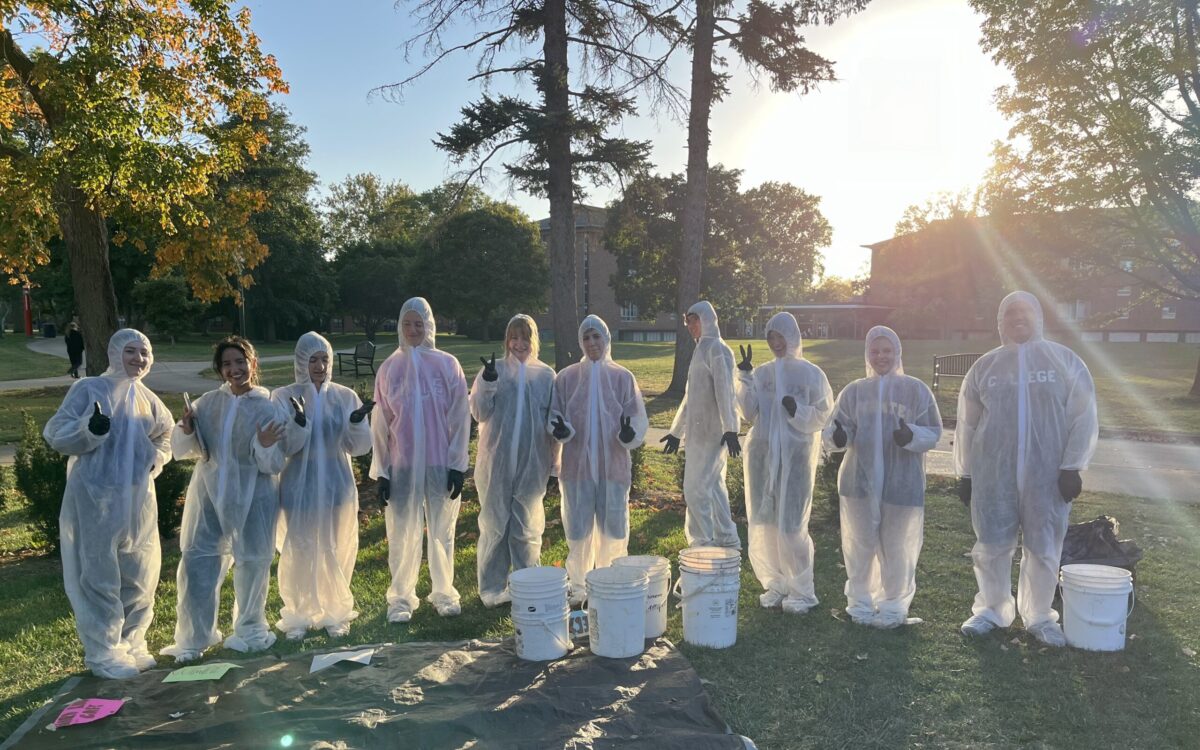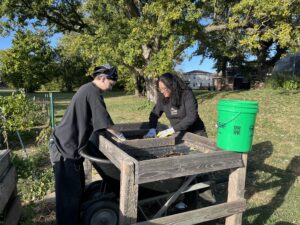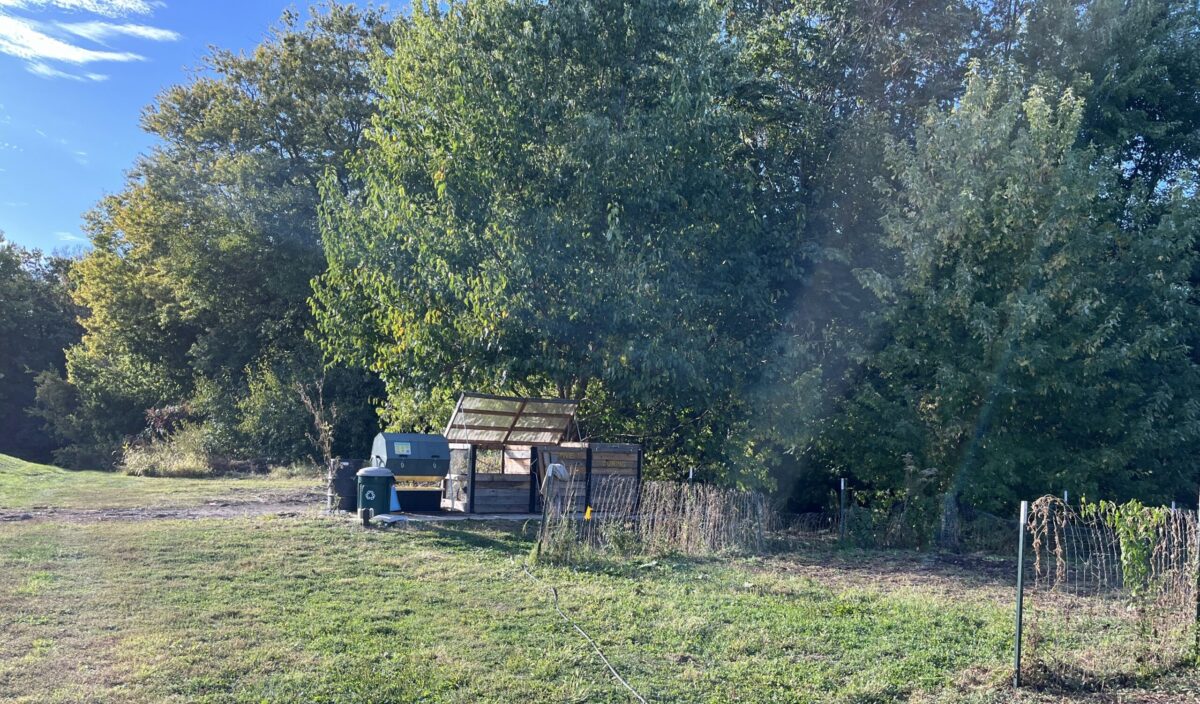Turning the Tides of Campus Composting at Knox College

Members of Knox Students for Sustainability club after conducting their waste audit
On a recent campus visit to Knox College in Galesburg, Illinois, I wandered to the end of West Berrien Street, where the campus farm is nestled between a few old houses. Two large hoophouses formed the centerpiece, backing up to a few smaller garden beds and an orchard. That evening, I helped with garden cleanup — felling dead sunflowers, ripping up cucumber vines, and finishing end-of-season projects.
As my team hacked away at the sunflowers, something down the hill caught my eye. Four students were loading bins with leaf litter, dead plants, woodchips, water — they were making compost! As a former campus farmer, this is the dream: a closed loop system using the farm’s plant material to make nutrient-rich compost that feeds the soil. I abandoned my sunflower-chopping duties and ambushed the students and their compost bins, brimming with questions.
Knox has been investing in waste management across the board, including new bin systems for food waste across campus and the community-scale composting I saw on the farm. The compost programs have sparked some wonderful word-of-mouth positivity for campus sustainability and the rollout of the three-bin waste systems builds on established waste diversion efforts. These systems will also allow the college to have cohesive and robust messaging around waste management and embark on a new era of on-campus waste management.
Community-scale composting, according to the EPA, uses locally sourced organic materials which, once composted, are reapplied to the community’s soil. These systems are the midpoint between household and industrial scale composting efforts, keeping soil healthy, resources local, and communities engaged in sustainability efforts.

Sifting compost at the Knox Farm.
Students Lead the Way
The college recently awarded the Office of Sustainability an innovation grant for two years to conduct a pilot project on scaling up the composting program. “This enabled us to form a Compost Crew of six students that are paid to manage the compost systems at the Knox Farm and receive ongoing training”, says Tina Hope, Knox’s director of sustainability and farm manager. A few fifth-year students run the composting efforts, and they’re training underclassmen to take their place. The students emphasized that this role took a lot of work and education, but it was exciting for them to lead the way in a new era of on-campus waste management.
These six students manage the farm’s extensive composting setup. In 2022, a student collaborative research project designed and implemented new composting infrastructure on the farm — a concrete pad, hose, and a three-bin, aerated static pile system with seven cubic yards of capacity. This system can house and process more material, which will provide data and practical management experience for students. Tina hopes this community-scale composting will serve as a case study for the viability of a future institutional-scale composting project, to be rolled out in the next few years.
A Community-Wide Effort to Divert Food Waste
Community-scale composting is just one piece of Knox’s overall efforts to reduce food waste (and waste in general) on campus. On top of the new paid positions and composting infrastructure, the college approved a plan this past summer to roll out new three-bin waste systems in three new areas of campus, expanding the accessibility of composting to the Knox community. “The Knox community has embraced these new initiatives and demonstrated that we can shift practice and work together to be successful in this work,” says Tina.
These new bins are an expansion of a three-bin system that has been used front-of-house in the dining hall for the past two years. For the better part of five years, the Knox Dining team has been composting back-of-house with Better Earth Compost out of Peoria, IL. General Manager Michael Alton told me that the team is proud of all the waste they divert weekly — an estimated 1,200-1,500 pounds!
While on campus, I helped the Sustainability Office and Students for Sustainability conduct a waste audit to measure contaminants in the new systems and assess what products are frequently disposed of incorrectly. The data we found can help the Sustainability Office focus educational efforts on the items and waste that are the most important.
I kickstarted some of this education with a waste sorting activity. I laid out an array of landfill, recycling, and compostable items from campus. I chose items for students to sort that had been disposed of incorrectly during the Waste Audit. All 75 students who approached the table learned something new!
Back at the farm, the students had explained that they used all the waste from the campus farm, but it took a community effort to make this compost system work, whether through donated food scraps from students and faculty, leaves gathered by the campus grounds crew, or woodchips dropped off by local companies. It was clear to me that this was a truly unique effort. Knox is brimming with compostable passion, and it was such an honor to work with the students, faculty, and Bon Appétit staff who are driving the campus towards a more sustainable future!

The composting system at Knox Farm.
This post is by Grace Mennerick, our Midwest Fellow. Read more from Grace.